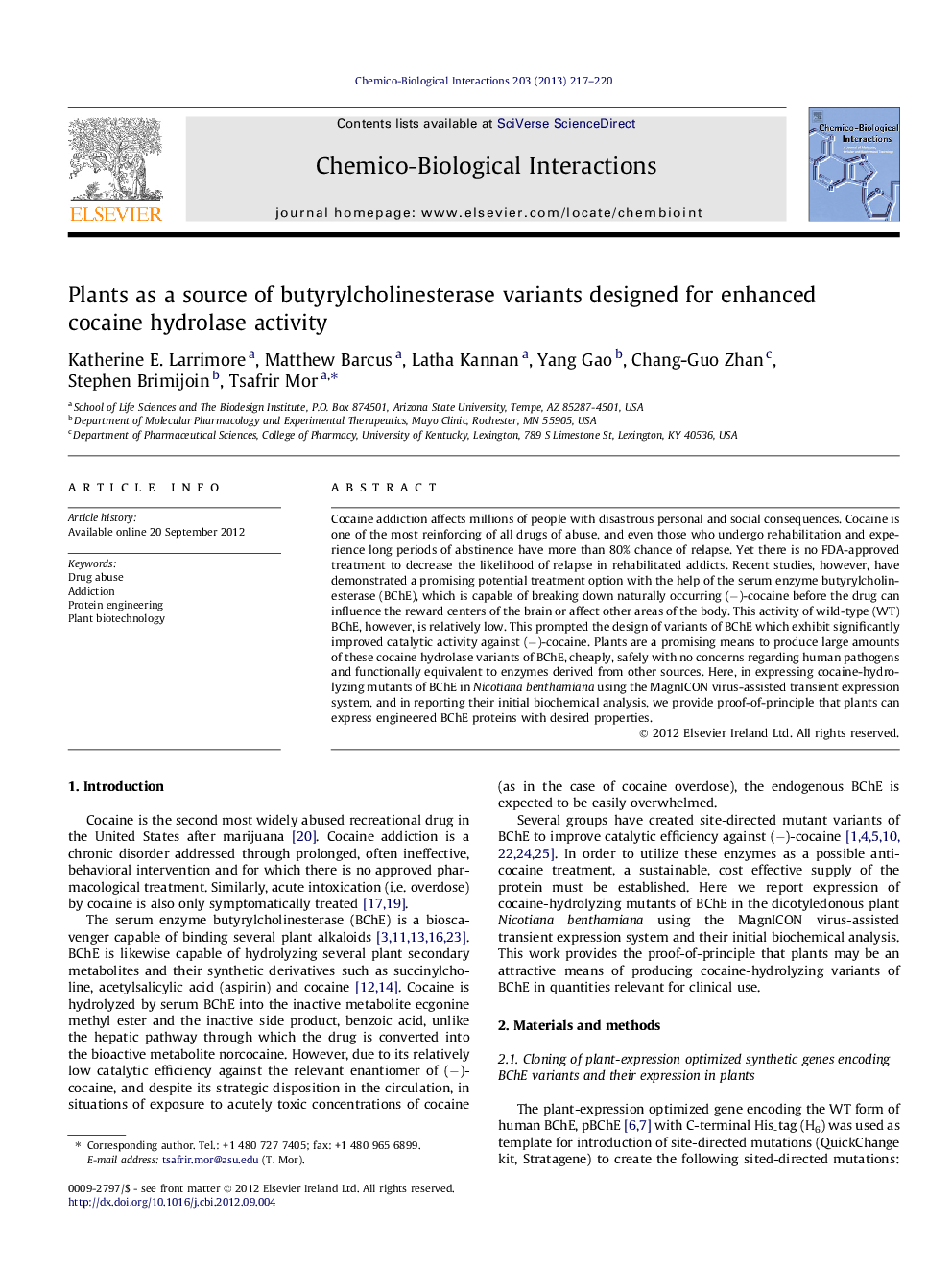| Article ID | Journal | Published Year | Pages | File Type |
|---|---|---|---|---|
| 5848349 | Chemico-Biological Interactions | 2013 | 4 Pages |
Abstract
Cocaine addiction affects millions of people with disastrous personal and social consequences. Cocaine is one of the most reinforcing of all drugs of abuse, and even those who undergo rehabilitation and experience long periods of abstinence have more than 80% chance of relapse. Yet there is no FDA-approved treatment to decrease the likelihood of relapse in rehabilitated addicts. Recent studies, however, have demonstrated a promising potential treatment option with the help of the serum enzyme butyrylcholinesterase (BChE), which is capable of breaking down naturally occurring (â)-cocaine before the drug can influence the reward centers of the brain or affect other areas of the body. This activity of wild-type (WT) BChE, however, is relatively low. This prompted the design of variants of BChE which exhibit significantly improved catalytic activity against (â)-cocaine. Plants are a promising means to produce large amounts of these cocaine hydrolase variants of BChE, cheaply, safely with no concerns regarding human pathogens and functionally equivalent to enzymes derived from other sources. Here, in expressing cocaine-hydrolyzing mutants of BChE in Nicotiana benthamiana using the MagnICON virus-assisted transient expression system, and in reporting their initial biochemical analysis, we provide proof-of-principle that plants can express engineered BChE proteins with desired properties.
Related Topics
Life Sciences
Environmental Science
Health, Toxicology and Mutagenesis
Authors
Katherine E. Larrimore, Matthew Barcus, Latha Kannan, Yang Gao, Chang-Guo Zhan, Stephen Brimijoin, Tsafrir Mor,
